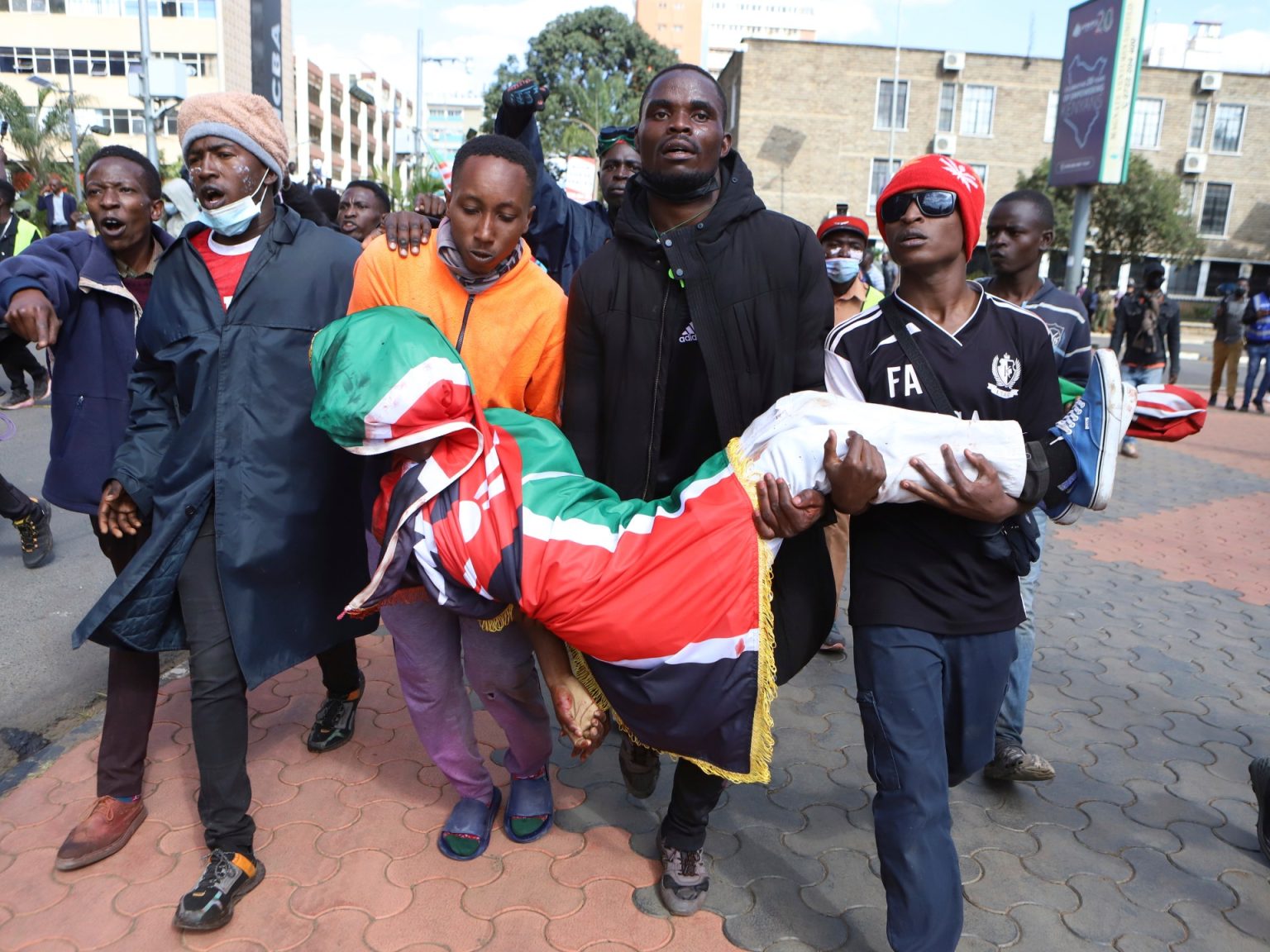In Kenya, protests erupted against a bill that would raise taxes, resulting in a deadly confrontation between demonstrators and police in Nairobi. The Kenya Medical Association confirmed that at least 13 people had been killed during the clashes. President William Ruto denounced the violence, stating that what had started as “legitimate” protests had been taken over by criminals. The situation escalated as protestors attempted to storm the legislature, prompting a harsh response from law enforcement.
The protests in Kenya reflect growing discontent among the population over the government’s decision to increase taxes. Many citizens have been struggling with economic hardships exacerbated by the COVID-19 pandemic, and the proposed tax hike only adds to their financial burden. The violent crackdown on protesters by police has raised concerns about the handling of dissent in the country and has drawn international attention to the situation. The deaths of civilians in the clashes have sparked outrage and calls for accountability from the government.
President Ruto’s characterization of the protests as being “hijacked” by criminals suggests an attempt to delegitimize the grievances of the demonstrators. It also raises questions about the government’s response to dissent and its commitment to addressing the root causes of the unrest. The use of force against protesters has been condemned by human rights organizations, with calls for an independent investigation into the violence. The government’s handling of the situation will be closely watched in the coming days as tensions remain high.
The deadly protests in Kenya have highlighted the deep divisions within the country and the challenges facing its leadership. The crackdown on demonstrators has raised concerns about the state of democracy and human rights in Kenya, with critics accusing the government of using excessive force to quell dissent. The deaths of civilians during the clashes have added a tragic dimension to the protests and have further inflamed public anger. The government’s response to the crisis will be critical in determining the future direction of the country and its commitment to upholding democratic values.
The international community has expressed concern over the violent events in Kenya and has called for a peaceful resolution to the crisis. The deaths of civilians in the protests have drawn condemnation from foreign governments and human rights organizations, who have urged the Kenyan authorities to exercise restraint and respect the rights of citizens to peacefully protest. The escalation of violence in Nairobi has placed the country at a crossroads, with the government facing mounting pressure to address the underlying issues driving the unrest. The coming days will be crucial in determining the path forward for Kenya and the prospects for a peaceful resolution to the crisis.
In conclusion, the deadly protests in Kenya over a proposed tax increase have raised significant concerns about the government’s handling of dissent and the state of democracy in the country. The violent crackdown on demonstrators by police has led to multiple deaths and has drawn condemnation from the international community. President Ruto’s response to the protests has been met with skepticism, with critics questioning his commitment to upholding democratic values. The coming days will be critical in determining the future direction of Kenya and the government’s willingness to address the grievances of its citizens.












